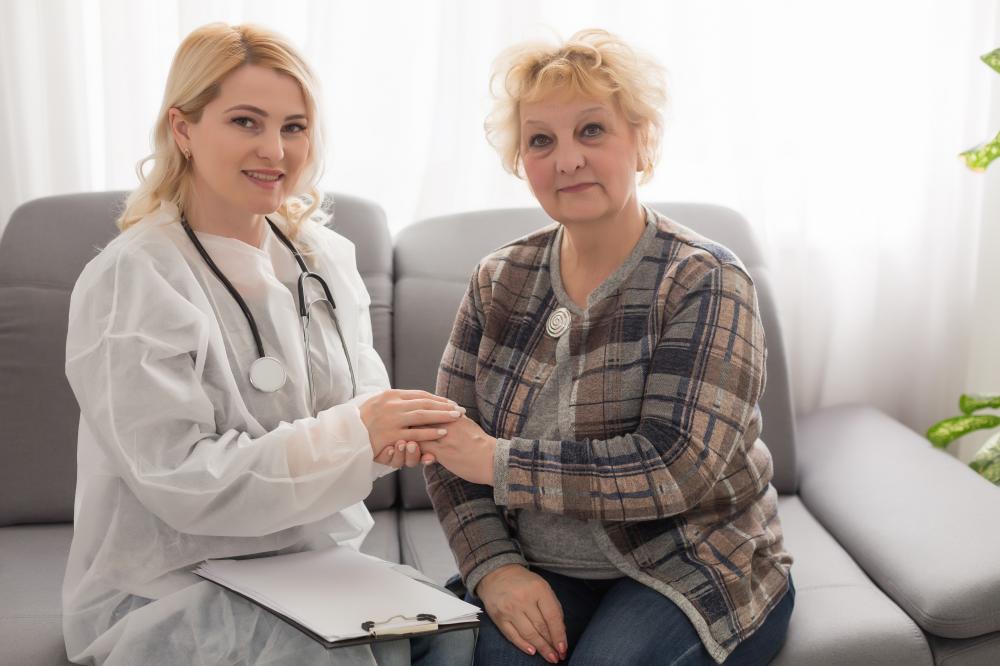
Schizophrenia: The Path to Wellness
Schizophrenia is a complex, chronic mental health disorder characterized by disruptions in thought processes, perceptions, emotional responsiveness, and social interactions. At Alta Loma, we recognize that each individual’s experience with schizophrenia is unique, necessitating a tailored approach to treatment. Our serene Georgetown location provides the ideal backdrop for healing and recovery, offering a structured environment where individuals can find emotional and psychological stability.
Best Treatment Schizophrenia
Personalized Care Plans
At Alta Loma, we believe that the best treatment schizophrenia strategies are those that are customized to the individual. Upon arrival, each resident undergoes a comprehensive assessment to identify their specific needs and challenges. This information forms the basis of a personalized care plan that includes a combination of medication management, cognitive behavioral therapy, nutritional planning, and recreational therapy.
Medication Management
Antipsychotic medications are often a foundational element of schizophrenia treatment, helping to manage symptoms such as delusions, hallucinations, and disordered thinking. At Alta Loma, we work closely with each resident to monitor the effectiveness of prescribed medications, make adjustments as necessary, and manage any side effects. Our goal is to find the optimal medication regimen that enables the highest quality of life with the fewest possible side effects.
Integrative Therapy Options
In addition to traditional medical treatments, Alta Loma offers a range of integrative therapy options designed to support holistic healing. Our programs include:
- Cognitive Behavioral Therapy (CBT) to address harmful thought patterns.
- Recreational therapy, such as equine therapy, to promote emotional and psychological healing through activities.
- Nutrition planning to support physical health and wellness, crucial for mental health recovery.
Supportive Community
Peer Support
One of the cornerstones of Alta Loma’s approach to the best treatment schizophrenia is building a strong, supportive community among residents. Peer support groups and communal living environments provide a space for individuals to share experiences, challenges, and successes. This sense of community fosters an atmosphere of understanding and empathy, which is vital for recovery.
Family Involvement
We also recognize the critical role that family plays in the recovery process. Alta Loma encourages family involvement through therapy and educational sessions, helping loved ones understand schizophrenia and how they can best support the individual during their recovery journey.
Long-Term Recovery
Lifestyle Changes
Successful management of schizophrenia often requires long-term lifestyle adjustments. Alta Loma’s community integration programs focus on helping residents develop the skills necessary for a healthy, independent life outside of our facilities. From vocational training to social skills development, our aim is to equip individuals with the tools they need for sustainable recovery.
Aftercare Planning
Transitioning back into society can be a challenging phase of the recovery process. Our comprehensive aftercare planning ensures that residents leave Alta Loma with a solid plan in place for continued treatment, support, and personal development. This may include outpatient services, peer support groups, and continued medication management.
Embracing Technology in Treatment
Digital Therapeutics
In an age where technology plays a crucial role in our daily lives, Alta Loma integrates digital therapeutics into our treatment programs. This includes the use of apps for mood tracking, medication reminders, and teletherapy sessions, providing residents with additional tools to manage their condition.
Innovative Approaches to Schizophrenia Treatment
Holistic Therapies
Understanding the intricate relationship between mind, body, and spirit, Alta Loma incorporates holistic therapies such as yoga and meditation into treatment programs. These practices help residents develop mindfulness and stress-management techniques, which are valuable tools for anyone living with schizophrenia.
Navigating Challenges Together
One of the most profound lessons we’ve learned at Alta Loma is that recovery from schizophrenia is not a journey that should be undertaken alone. By providing a nurturing environment filled with support, understanding, and comprehensive care, we help our residents navigate the challenges of schizophrenia. Whether through the development of coping strategies, the stabilization of symptoms via medication, or the fostering of a supportive community, our aim is to empower each individual to lead a fulfilling life.
Alta Loma’s dedication to offering the best treatment schizophrenia can be seen not only in our comprehensive care approach but also in the meticulous attention to creating a therapeutic community. Our facilities are more than just a place for treatment; they are a home where healing begins, and lasting relationships are built. If you or a loved one is struggling with schizophrenia, we invite you to reach out to us. Together, we can embark on a journey towards wellness and recovery.

What is the most effective treatment for schizophrenia?
At Alta Loma, we’ve observed that the most effective treatment for schizophrenia encompasses a multifaceted approach tailored to the individual’s unique needs. This often involves a combination of medication management, specifically antipsychotic medications, and psychotherapy. Cognitive Behavioral Therapy (CBT) has shown great promise in addressing harmful thought patterns and behaviors in individuals with schizophrenia. However, it’s crucial to recognize that effectiveness can vary greatly from one person to another, emphasizing the importance of personalizing treatment plans. Building a strong support system, both through peer support groups and family involvement, is also a cornerstone of effective treatment, offering emotional stability and enhancing recovery outcomes. It’s not just about managing symptoms but facilitating a comprehensive recovery that encompasses mental, emotional, and social wellness.
What is the best way to cope with schizophrenia?
Dealing with schizophrenia requires a robust coping mechanism that includes both medical and non-medical strategies. Engaging actively with treatment plans, which might include medication and therapy sessions, is fundamental. Additionally, developing a lifestyle that supports mental health is key. This could involve regular physical activity, a nutritious diet, and adequate sleep, all of which have a positive impact on mental well-being. At Alta Loma, we also stress the importance of a supportive community. Engaging in peer support groups can offer valuable insights and understanding, making the journey less isolating. Coping with schizophrenia is also about recognizing triggers and signs of exacerbation early, allowing for prompt intervention to manage symptoms effectively.
What should people with schizophrenia avoid?
For individuals grappling with schizophrenia, certain environments and substances can exacerbate symptoms or interfere with recovery. High-stress situations and environments with a lot of sensory stimulation can potentially trigger or worsen symptoms. Substance abuse, including alcohol, recreational drugs, and even excessive caffeine, is particularly detrimental. These substances can interact unpredictably with psychiatric medications and may worsen the condition or hinder treatment effectiveness. At Alta Loma, we also recommend limiting exposure to highly negative or toxic relationships that can contribute to stress or feelings of isolation. Fostering a stable, supportive, and healthy environment is key to managing schizophrenia effectively.
Can you treat schizophrenia without medication?
While medication is a cornerstone of schizophrenia treatment, particularly for managing acute symptoms and preventing relapses, some individuals may explore additional avenues alongside or in lieu of pharmacological treatments, especially in cases of mild symptoms or when side effects are particularly burdensome. Cognitive Behavioral Therapy (CBT), community support, and lifestyle modifications can play crucial roles in treatment. Practices like mindfulness, regular exercise, and nutritional planning can support overall well-being. However, it’s important to approach this path under close medical supervision to monitor symptoms closely. At Alta Loma, we consider all aspects of an individual’s condition and work towards a holistic treatment plan, integrating various therapies and supports to optimize mental health and quality of life.
What integrative therapy options are available for schizophrenia?
Alta Loma embraces a holistic approach to treating schizophrenia, incorporating various integrative therapies aimed at supporting overall well-being. Cognitive Behavioral Therapy (CBT) is one of the cornerstones, helping individuals to challenge and change harmful thought patterns. Additionally, we offer recreational therapies, including equine therapy, which promote emotional and psychological healing through structured activities. Nutrition planning is another critical component, supporting physical health to improve mental health outcomes. These therapies are designed to complement traditional medical treatments, offering a comprehensive approach to recovery that addresses the mind, body, and spirit.
How does a supportive community contribute to the treatment of schizophrenia?
A supportive community is invaluable in the treatment of schizophrenia, providing individuals with a sense of belonging, understanding, and shared experiences. At Alta Loma, we’ve seen firsthand how peer support can foster an environment of empathy and encouragement, significantly impacting recovery. Individuals are more likely to engage in treatment and stay motivated when they’re part of a compassionate community. Additionally, involving families in the treatment process educates them about the disorder, enabling them to offer more effective support at home. This combined network of support from peers, family, and healthcare professionals creates a solid foundation for long-term recovery.






